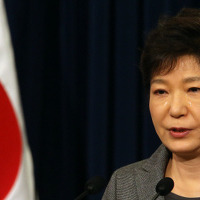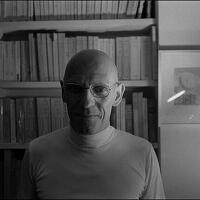Although the film Kumare seems try to show that all seemingly authentic spiritual leaders are illusions, the thought underling the film, I think, is that there is no realness in the essentialist meaning and the realness itself is a one socially constructed. I would argue this film deals with realness and fakeness as something provisional that are being socially constructed, negotiated, and experienced through the sharing of meanings, practices, and rituals within particular social relations.
In the essentialist view of the self, a person has a singular, authentic, and eternal self that cannot be changed in its essence. In the essentialist view, Kumare is a fake self because Vikram, the film maker, created Kumare by himself for this project. The film, however, spends quite lots of scene in order to show how sincerely this fake spiritual leader is acclaimed as a true guru by those who believe in his authenticity and authority as a spiritual leader. At first, some interviewees seriously assuring their authentic spiritual experiences through and with Kumare, look a bit ridiculous even though no effects are employed for making them silly. In the latter part of the film, however, a film audience comes to encounter his disciples’ life events, confessions, and affections which do not seem fake at all. Because of the seemingly real believers, the audience cannot but doubt whether it is valid to conclude that their spiritual experiences are all fake only for the reason they are heavily based on the fake identity of Kumare.
On the Blue Light meditation scenes, for instance, even Vikram confesses that, for the first time, he felt the Blue Light and he states that it was becoming something real although the concept of the Blue Light was made up by himself. Even though he was aware of its illusionary beginning, he could not deny the fact that he felt the Blue Light. This is the reason it is stated that the Blue Light was “becoming something real.” Realness is on construction. Although certain social/religious action might have an illusionary and imaginary origin, once they are performed with particular meanings in them, they can be experienced as something real and authentic within the social relations where the social/religious actions are performed.
Thus, the film shows how ironically a fake spiritual leader in the essentialist sense could become a true spiritual leader among those who believe in his authenticity and authority as a guru. People might be able to have certain authentic spiritual experience even derived from the relation with the fake guru who is not an authentic religious leader at all in the essentialist view. If this is the case, what realness is cannot be determined in the first place. Rather, it is determined within the ongoing negotiation among the social relations of those who collectively imagine, share, and perform something called authentic.
This film eloquently represents the postmodern thinking of what truth is and what realities are. And this thinking is highly contagious. Once one begins to think realness/truth/authenticity as something socially constructed and not essential, the others cannot but doubt their presupposition that realness/truth/authenticity are something fixed, essential, and eternal because the existence of the skeptic itself deconstructs the social realities, that both the skeptic and the others have collectively shared and believed. At this point, the social realities cannot be something fixed, essential, and eternal any more. In this regard, the unveiling of the real identity of Vikram is a crucial and irreversible trial deconstructing not only his ideal self of Kumare but also the realities of the disciples which have been significantly interwoven with Kumare, their authentic guru. It is not just an unveiling of his real self but of the new truth that there is no realness in the essentialist meaning as there is no real/authentic Kumare in which the disciples have believed. There only remain the authentic spiritual relations, memories, and experiences between Kumare and the disciples who decide to embrace that new truth that there are no authentic gurus outside themselves. The new truth requires a paradigm shift about what realness and fakeness are. Some accept it but others just cannot. They cannot keep in contact with Vikram who himself is the existing proof of that there is no authentic guru who they had searched and, furthermore, that there is no transcendental, singular, and eternal truth (or salvation). In order to be in contact with Vikram (not Kumare), you should embrace not only him but the new truth/paradigm shifting about what realness is.
'필진 > 김승수' 카테고리의 다른 글
| 신자유주의적 통치성의 특징들 (0) | 2014.12.10 |
|---|---|
| 감정에 대한 통념, 개신교인들의 감정-감각-몸, 그리고 '공부' (0) | 2014.07.01 |
| 빅 브라더의 은밀한 고민 : 자유주의, ‘사회’를 통한 ‘국가’의 통치적 열망 (0) | 2014.03.31 |
| 통치성(Governmentality)이란 무엇인가? (0) | 2013.12.27 |
| 신자유주의 시대, 어느 개신교 청년의 회심과 정체성에 대한 단상 (0) | 2013.09.13 |




